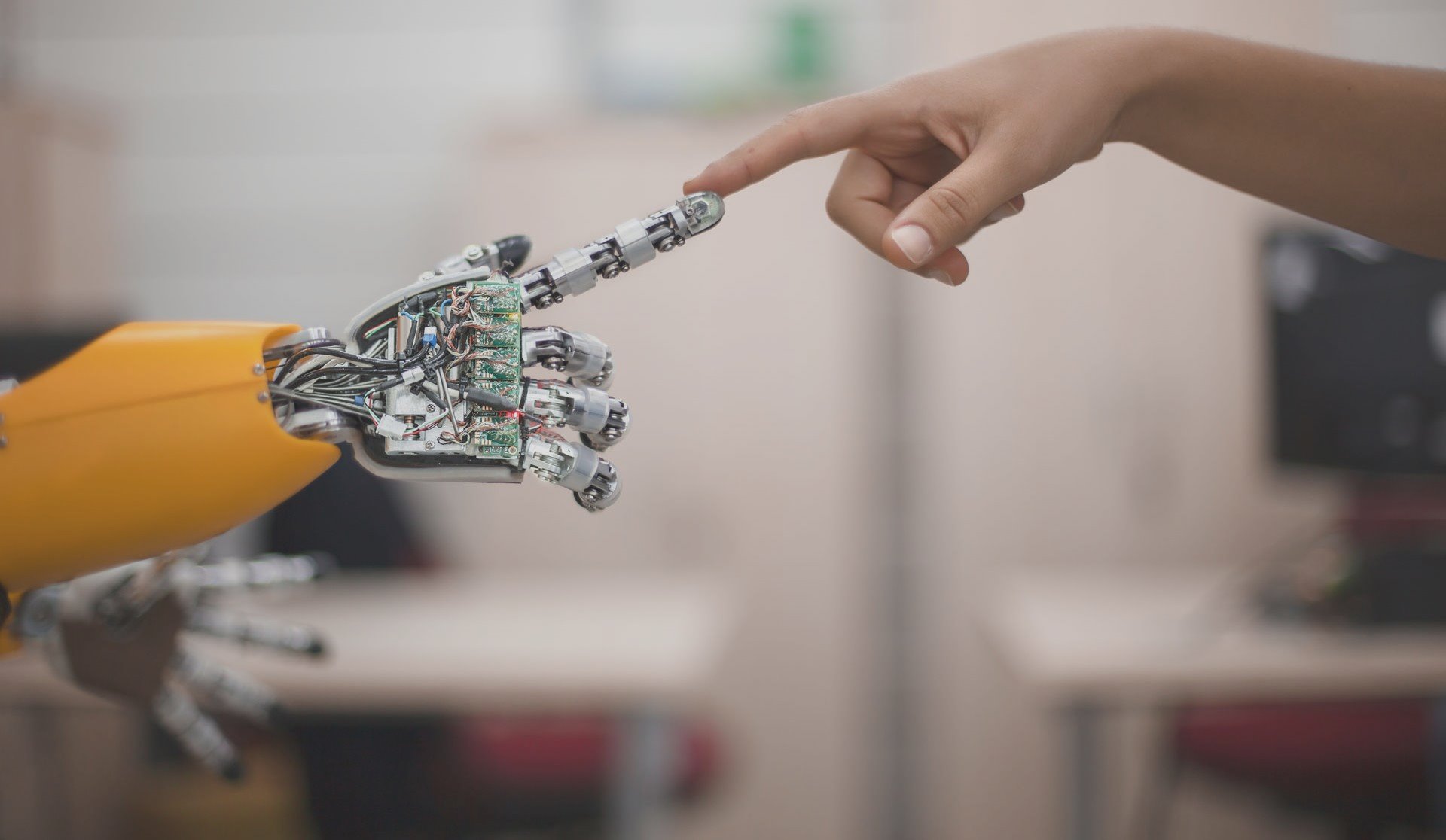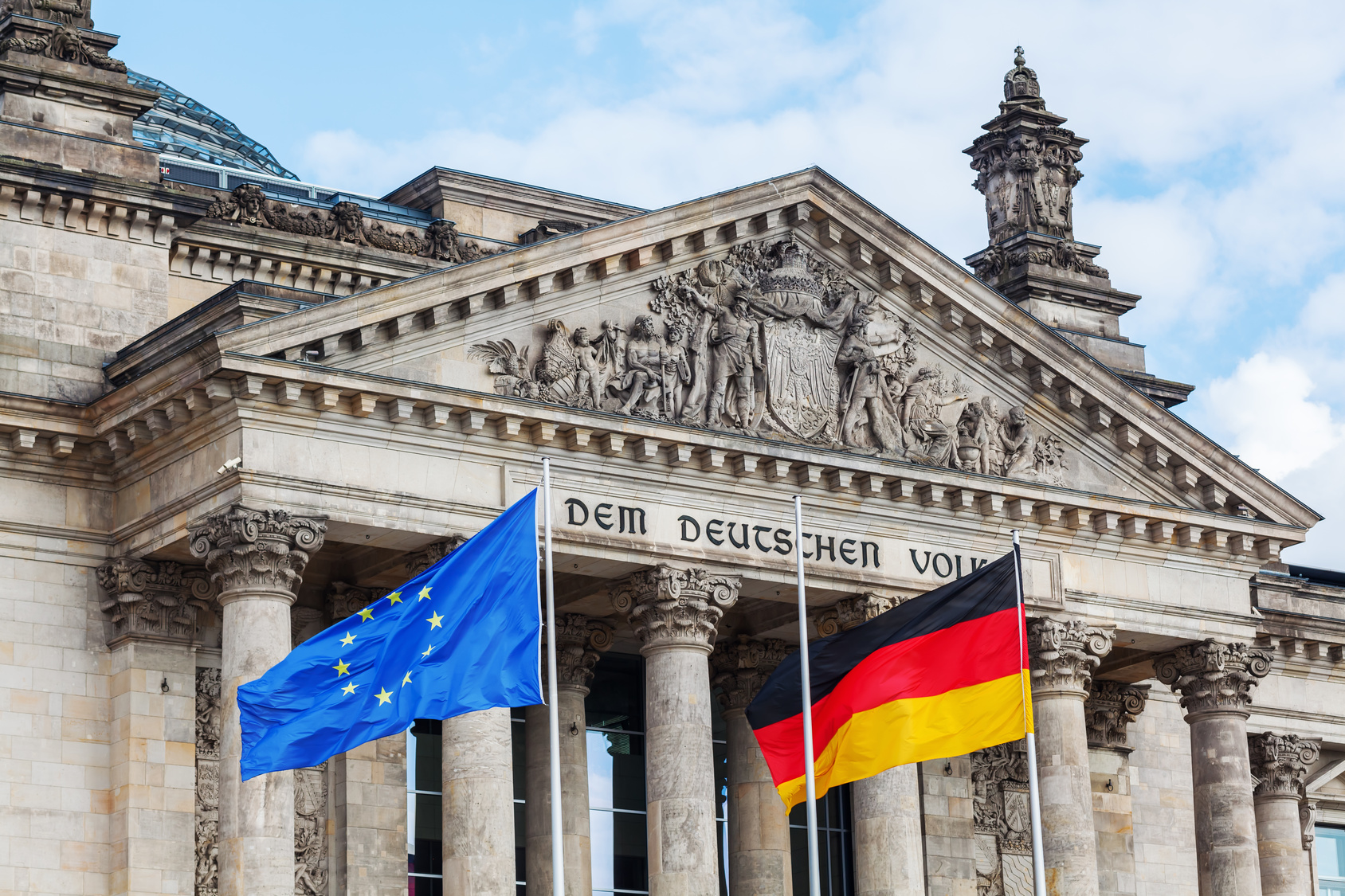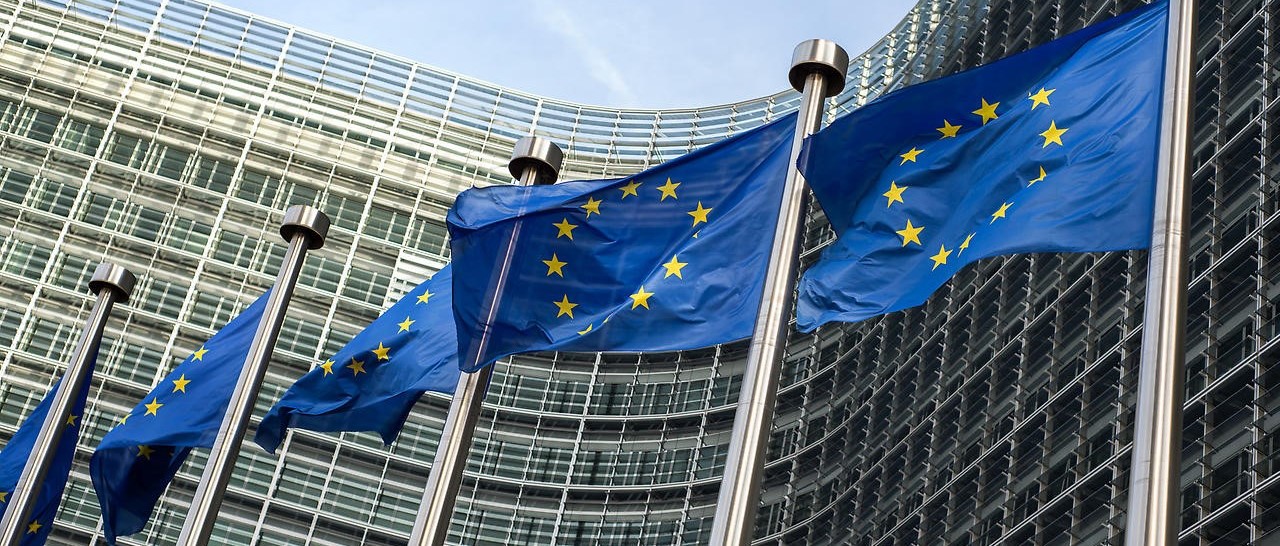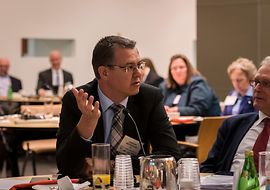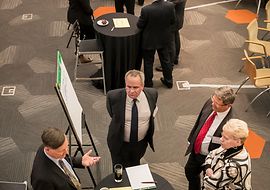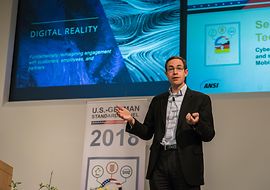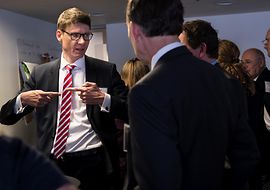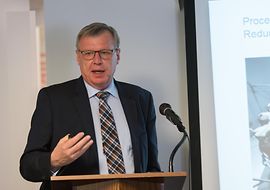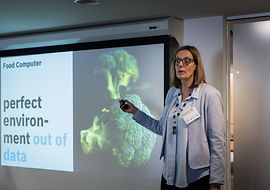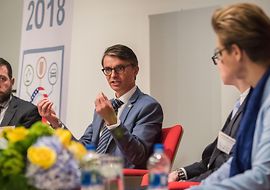U.S.-German Standards Panel 2018: Cybersecurity in Smart Manufacturing, Mobility and Agriculture
Securing Future Technologies - Cybersecurity and other Challenges and Solutions for Smart Manufacturing, Mobility and Agriculture
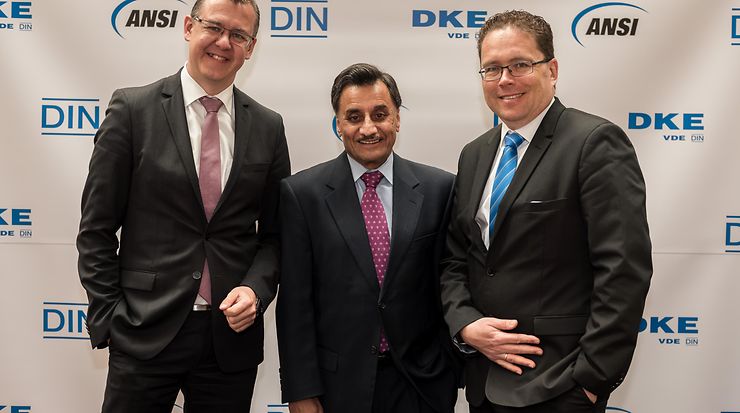
© ANSI/DIN/DKE 2018
"Securing Future Technologies – Cybersecurity and other challenges and solutions for smart manufacturing, mobility, and agriculture": This motto set the tone for the U.S.-German Standards Panel, which met from 9 – 11 April 2018 in Washington D.C. Around 80 German and American participants from business, science, and various standardization and certification organizations discussed the opportunities and challenges that the digital transformation poses for its economic sectors, focussing on IT security. The conference was jointly organized by the American National Institute of Standards (ANSI), DIN and DKE. In light of the international need for standards in smart manufacturing (Industrie 4.0), smart mobility and smart agriculture, bilateral “action items” were developed in three parallel breakout sessions. Panel discussions about the political framework conditions for IT security in Germany, Europe and the USA, as well as about the role of standardization and certification organizations, completed the programme.
At the centre of the “smart manufacturing” breakout session was the question of which requirements Industrie 4.0 applications place on “smart contracts”. The results of this discussion will be made available to ISO TC 307 “Blockchain and distributed ledger technologies”. Also under discussion was the issue of how safety at work and the use of smart machines can successfully coexist. All experts agreed that risk analyses would be the key here.
The breakout session on smart mobility featured discussions regarding the role of private travel, with specific reference to IT security in times of intelligent traffic systems. With this in mind, standardization efforts need to take into consideration the hugely varied framework conditions involved (geographic, economic, environmental etc.). At same time, experts say that new traffic technologies must be integrated into the existing mix of technologies – and to achieve this, standards organizations need to work more closely with the relevant companies in this sector.
The world’s population is continually growing whilst land that can be used agriculturally is becoming more limited. In order to ensure that agriculture of the future is as efficient as possible, international standards for smart agriculture are needed. All participants of the breakout session with the same name agreed that harmonized global solutions are more sustainable and targeted than single solutions produced by individual companies or consortia. To present this topic in a comprehensive manner, a joint Standardization Roadmap is to be initiated in which existing standards for this field of industry are identified and, in turn, the need for further standardization is described.
ANSI, DIN and DKE welcomed the action items that were prepared during the conference, and gave us this positive conclusion: The U.S.-German Standards Panels delivered diverse yet concrete points of action for the continuation and expansion of the transatlantic cooperation with regard to international standardization projects.
You can find the agenda from the 9 and 10 April, as well as the conference presentations, under this link. The documentation can be found here.

